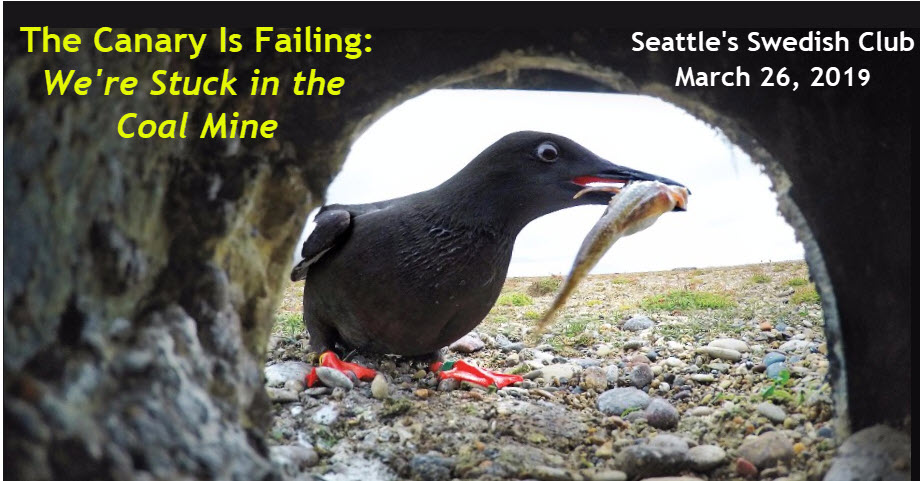
Tuesday March 26 at Seattle’s Swedish Club
Reception at 6 pm with presentation at 7 pm
Reception at 6 pm with talk at 7 pm
The Cooper Island Black Guillemot colony was first recognized as a monitor of a warming climate in 2002, the 23rd year of the study. Decreasing sea ice in a rapidly melting Arctic continues to diminish its population and breeding success. Now in its 44th year, and with evidence of global climate change increasingly evident, our research is documenting this Arctic seabird’s struggle to survive.
Join us to hear about the current status of this unique Arctic seabird – our canary in the coal mine. Learn what the four decades of research on Cooper Island can teach us about how a warming Arctic impacts life everywhere, including the Pacific Northwest.
Doors open at 6 pm for a reception upstairs at the Swedish Club (just west of and overlooking Lake Union) with wine, beer and light fare with the presentation at 7 p.m.
As global warming continues, one of the most important things individuals can do to fight climate change is talk about it. Please join us at the Swedish Club for an evening to learn, talk and think about climate change and how it is affecting both the Arctic and the Pacific Northwest.
A short interview with George Divoky, The study of one bird, 43 years in the making, on Seattle NPR station, KNKX, in 2017 is available here.
Join us on Tuesday March 26th at Seattle’s Swedish Club to hear about our 2018 field season on
